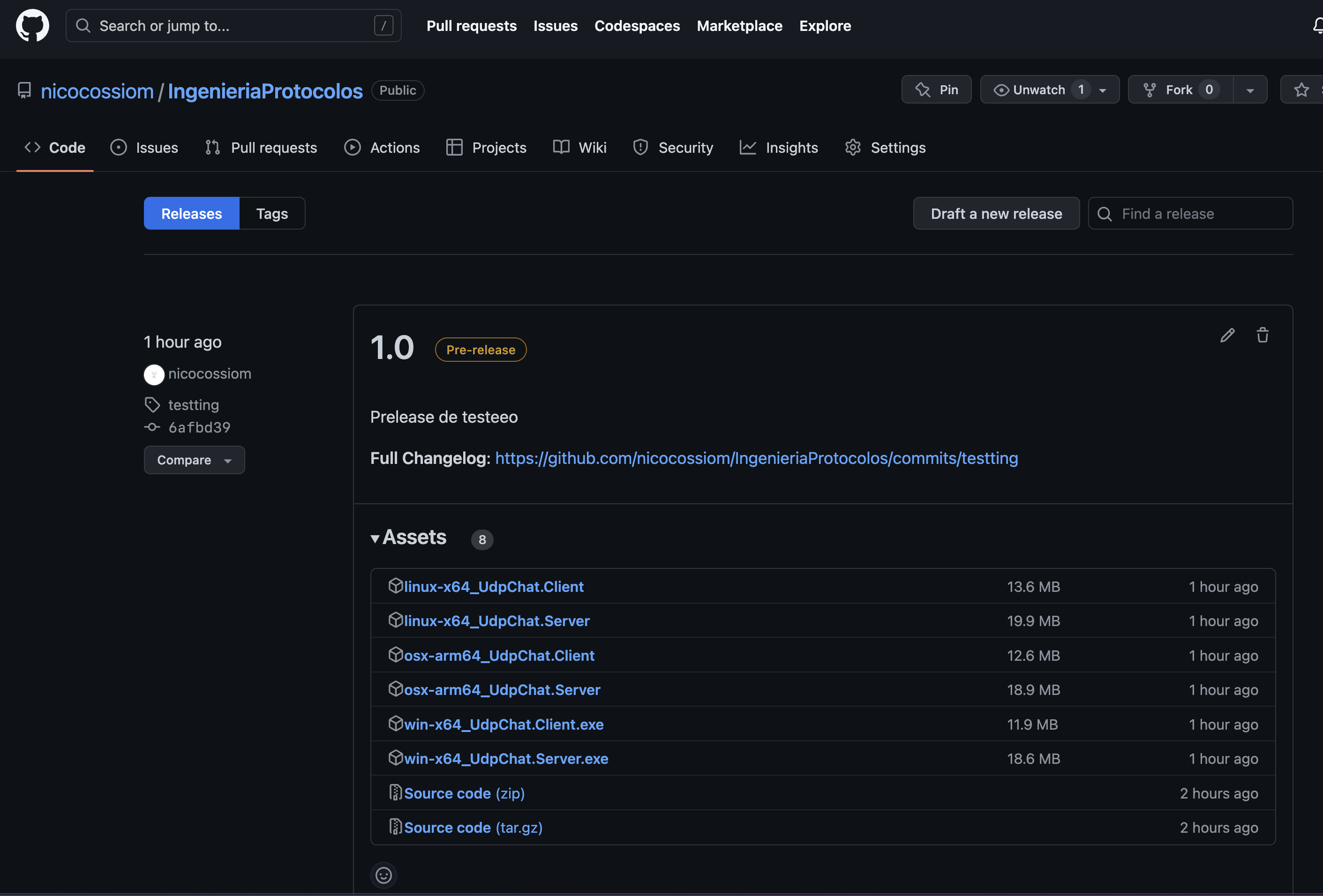Client CLI Documentation
This CLI can be used to interact with a server in otder to register, login, send messages, etc.
Table of contents
Usage
Default settings
$ UdpChat.Client
Welcome to the UDP chat client!
Default settings:
Client ports: Recieve 4000 - Send 4001
Central Server: Adress 127.0.0.1 - Port 5000
Do you want to use the default settings? (y/n) (↩️ after input))
y
Client created at 4000 with central server at 127.0.0.1:5000
Messages that are sent by the server will be displayed, waiting for messages...
Input a command, available commands are
- register
- login
- send
- unregister
Custom settings
$ UdpChat.Client
Welcome to the UDP chat client!
Default settings:
Client ports: Recieve 4000 - Send 4001
Central Server: Adress 127.0.0.1 - Port 5000
Do you want to use the default settings? (y/n) (↩️ after input))
n
Enter a port for the client (enter for 4000):
4004
IP of central server (enter for 127.0.0.1):
Port of central server (enter for 5000):
Client config:
Client ports: Receive=4004 - Send=4005
Central Server: Address=127.0.0.1 - Port=5000
Is this correct? (y/n)
Client created at 4004 with central server at 127.0.0.1:5000
Messages that are sent by the server will be displayed, waiting for messages...
Input a command, available commands are
- register
- login
- send
- unregister
Commands
- register
- login
- send
- unregister
To see examples of using the client go to examples
To exit the server in a controlled manner press Ctrl + C. This will ensure the client closes its
opened resources in an orderly fashion.
Installation
There is no installer. There are 2 ways to get the client CLI:
With dotnet (.NET)
git clone git@github.com:nicocossiom/IngenieriaProtocolos.git UDPChat
Cloning into 'UDPChat'...
remote: Enumerating objects: 584, done.
remote: Counting objects: 100% (584/584), done.
remote: Compressing objects: 100% (291/291), done.
remote: Total 584 (delta 340), reused 514 (delta 270), pack-reused 0
Receiving objects: 100% (584/584), 6.78 MiB | 1.57 MiB/s, done.
Resolving deltas: 100% (340/340), done.
Binary executable
You can download a binary from the releases page and run it directly. There are binaries for Windowsx64, Linux64 and MacOSarm64.
Latest release download
Github Releases page
You can laso go to the releases page on Github to see all available releases and platforms.

After downloading the client move the file to a folder of your choice.
You can then place this folder wherever you want. You can also add the folder to your PATH environment variable to be able to run the client from anywhere.
Add to PATH
MacOS and Linux
export PATH=$PATH:/path/to/folder
Windows CMD or Powershell
Windows CMD in Admin mode
set PATH=%PATH%;C:\path\to\folder
Windows Powershell in Admin mode
$env:Path += ";C:\path\to\folder"
In Windows you can run the executable from the command line. Or from double clicking it.
Excute the client CLI
Binary
Windows
# Windows
win-x64_UdpChat.Client.exe
In MacOS and Linux you may need to give the executable permissions before running it.
MacOS
chmod +x osx-arm64_UdpChat.Client ./osx-arm64_UdpChat.Client
Note: On MacOS you may need to open in Finder the folder where you have the binaries, then right Click -> Open to allow the executable to run you will get a popup saying something like:
"osx-arm64_UdpChat .Client" can't be opened because Apple cannot check it for malicious software. .... Click OK. And try again.
Linux
chmod +x linux-x64_UdpChat.Client && ./linux-x64_UdpChat.Client
Dotnet (.NET)
cd UDPChat
dotnet run --project UdpChat.Client
Welcome to the UDP chat client!
Default settings:
Client ports: Recieve 4000 - Send 4001
Central Server: Adress 127.0.0.1 - Port 5000
Do you want to use the default settings? (y/n) (↩️ after input))